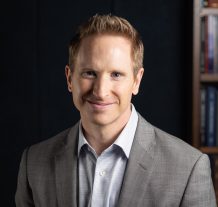
In-Person in Charlotte, NC 28210
Online in
PSYPACT states
Alabama, Arizona, Arkansas, CNMI, Colorado, Connecticut, Delaware, Florida, Georgia, Idaho, Illinois, Indiana, Kansas, Kentucky, Maine, Maryland, Michigan, Minnesota, Mississippi, Missouri, Montana, Nebraska, Nevada, New Hampshire, New Jersey, North Carolina, North Dakota, Ohio, Oklahoma, Pennsylvania, Rhode Island, South Carolina, South Dakota, Tennessee, Texas, Utah, Vermont, Virginia, Washington, Washington, D.C., West Virginia, Wisconsin, Wyoming
The focus of my practice is on assisting thoughtful, motivated individuals and couples to deepen self-understanding, alleviate points of pain, and increase capacities for full and contented living.
Client Focus
Session Format: Couple, Individual sessions.
Age Specialty: Adult, Senior, Young Adult
Treatment Approach
- Acceptance & Commitment Therapy (ACT) Helps people accept difficult thoughts and feelings instead of fighting them, while committing to actions that reflect their values. It blends mindfulness with practical behavior strategies.
- Existential / Humanistic Therapy Encourages people to explore meaning, freedom, and authenticity in their lives. It focuses on personal growth and living in alignment with one’s values.
- Family Systems Therapy Looks at problems within the context of the family as a whole. It aims to improve communication and balance in family relationships.
- Jungian Therapy Draws on Carl Jung’s ideas about archetypes, dreams, and the collective unconscious. It helps people explore deeper layers of meaning.
- Psychoanalytic Therapy Based on Freud’s theories, it explores unconscious conflicts and past experiences. It seeks to bring hidden issues into awareness.
- Psychodynamic Therapy Explores unconscious thoughts and patterns that influence current behavior. It builds insight into how the past impacts the present.
- Self Psychology Explores the development of self-esteem and identity. It emphasizes the importance of empathy in healing.
Approach Description: My approach integrates contemporary psychological science with psychoanalytic and Jungian perspectives. Training in Couple and Family Psychology has oriented my attention to the relational systems in which difficulties develop and change—patterns between people, roles, and life stages. Ongoing study at the C.G. Jung Institute of New England has deepened my capacity to guide individuals in work with symbolic and unconscious processes, including dreams, in ways that open meaning without reducing experience to symptoms. When a more structured framework is useful, I draw on Acceptance and Commitment Therapy to translate insight into skills: clarifying values, building psychological flexibility, and practicing workable actions. Across methods, my emphasis is practical and humane—use what helps, in the right dose, and link understanding to change.
Education & Credentials
Dr. Michael J. Lee
- Male
- License # 5550
- Licensed in North Carolina
- PSYPACT Mobility # 10741
- Practicing Since 2017
Education: I hold a Bachelor of Arts in Cinematic Arts from the University of Southern California, a Master of Arts in Psychology from Pepperdine University, and a Doctor of Psychology (PsyD) in Clinical Psychology from Azusa Pacific University, with a programmatic emphasis in Couple and Family Psychology.
Finances
Fees
- Average Session Fee $190
- Out of Network
Dr. Michael J. Lee Practice Details
Therapy Sessions
- Available In-Person in Charlotte, NC 28210
- Available Online for residents of PSYPACT states Alabama, Arizona, Arkansas, CNMI, Colorado, Connecticut, Delaware, Florida, Georgia, Idaho, Illinois, Indiana, Kansas, Kentucky, Maine, Maryland, Michigan, Minnesota, Mississippi, Missouri, Montana, Nebraska, Nevada, New Hampshire, New Jersey, North Carolina, North Dakota, Ohio, Oklahoma, Pennsylvania, Rhode Island, South Carolina, South Dakota, Tennessee, Texas, Utah, Vermont, Virginia, Washington, Washington, D.C., West Virginia, Wisconsin, Wyoming
I work with individuals and couples to clarify recurring patterns, reduce distress, and cultivate a more integrated way of living. The work is depth-informed and collaborative: which means we slow the process enough to understand what is happening both at and beneath the surface—what repeats, where it comes from, what it serves, and what it asks for—and then turn that understanding into workable next steps. The aim is durable change felt in daily life—less reactivity, more choice, and a steadier sense of yourself and your relationships.